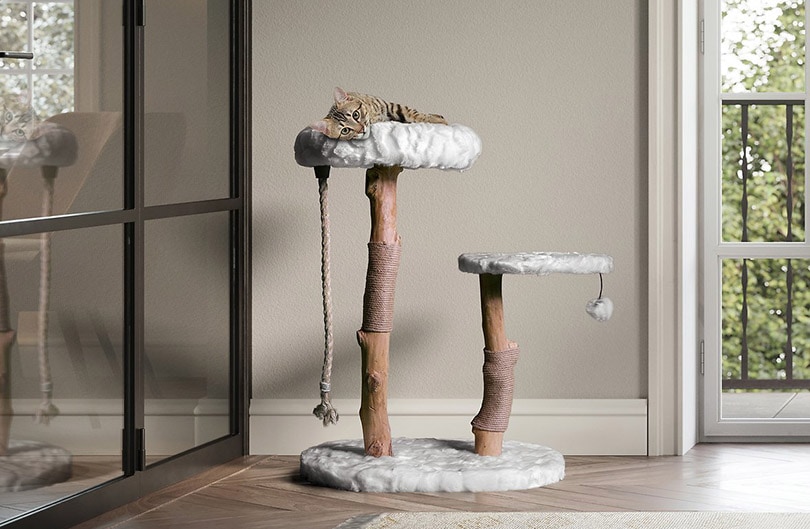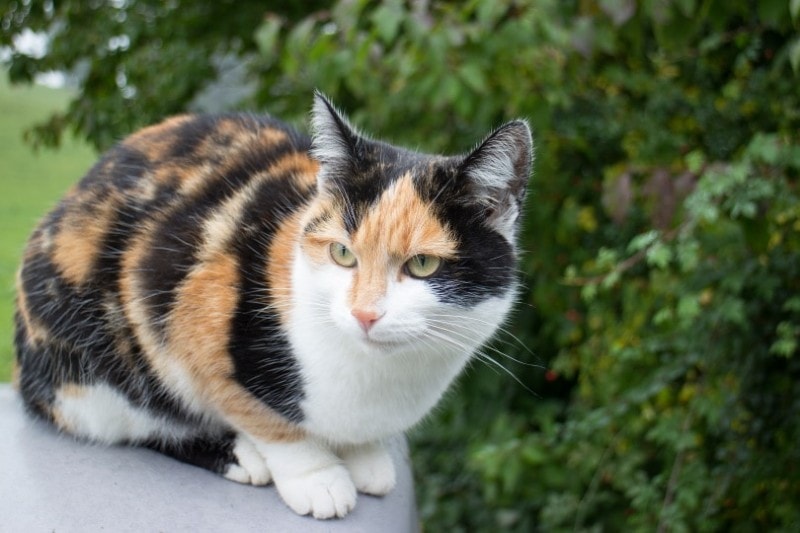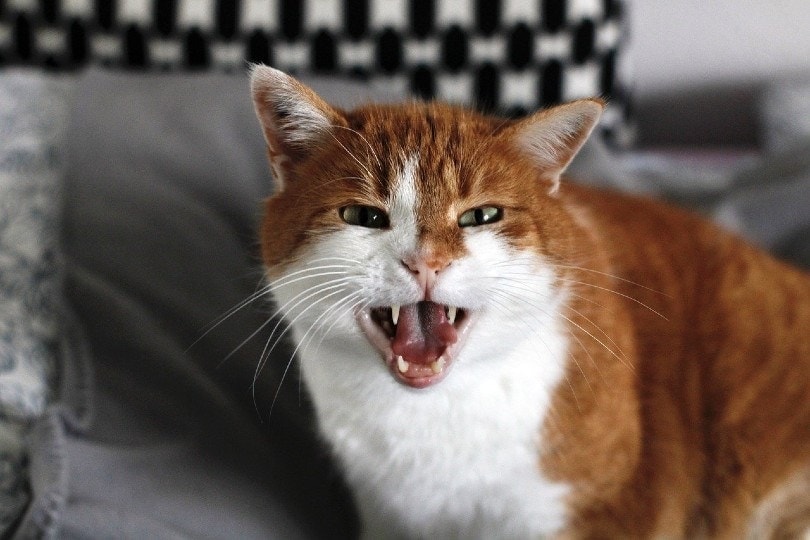Why Does My Cat Keep Coughing? 7 Vet-Reviewed Causes & Care Tips
Updated on
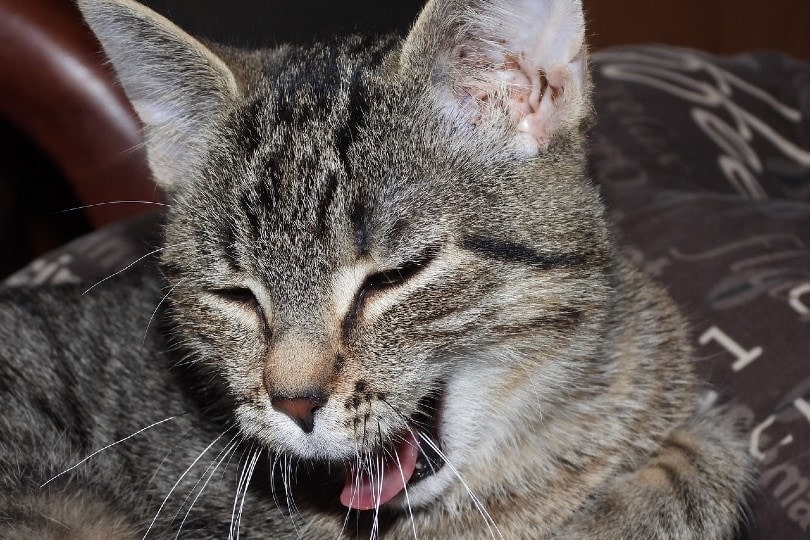
Click to Skip Ahead
Coughing is a normal, reflexive response to irritation in the throat or airways. Occasional coughing is normal for cats, but many cat owners have never heard their cats cough because they do so infrequently. If your cat is coughing, when should you be concerned? Are they actually coughing, or is it something else? Read on to find the most common causes of cat coughing and what to do about it.
Do Cats Cough?
Yes, cats cough just like people do; they just don’t do it as often. Any irritation in the throat or respiratory tract can cause your cat to cough. Occasional coughing is normal, but most cats don’t cough at all unless something is wrong.
A cat’s respiratory system runs from their nose into their lungs. It includes the nasal cavity, throat (pharynx), voice box (larynx), windpipe (trachea), and lungs. Inside the lungs, there are small air passages called bronchi that lead to even smaller ones called bronchioles. Since there are so many parts to a cat’s respiratory system, it can be hard to know where the problem is.
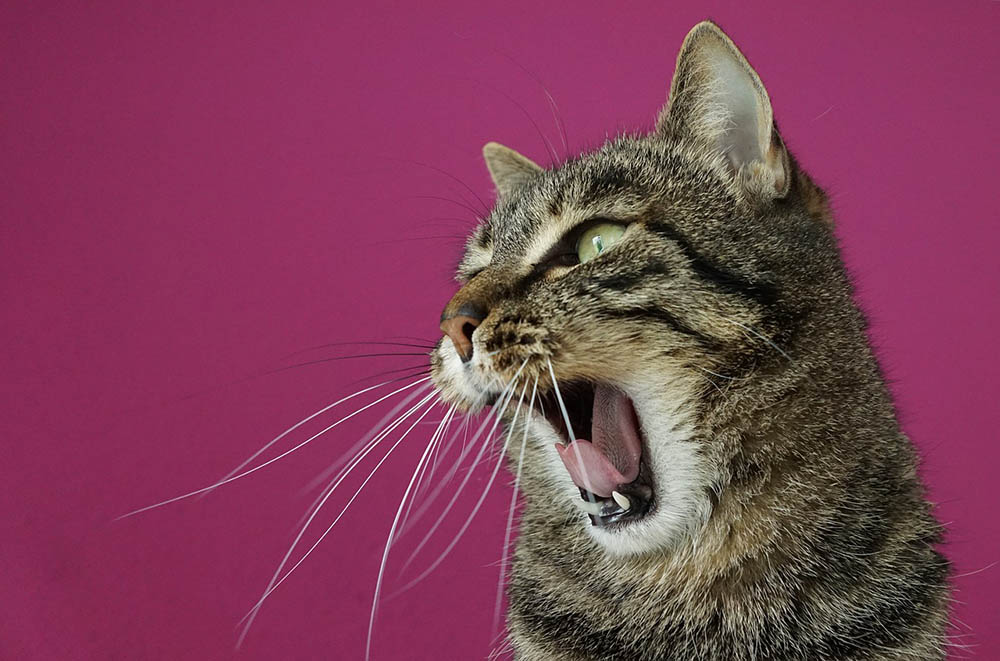
What Does Cat Coughing Sound Like?
When a cat coughs, they usually stop whatever activity they’re doing and stick their head and neck out straight. You might hear one cough or several in a row. The movement of a cat’s chest and belly are dramatic because the cough pushes air out forcefully.
There are two types of cat coughs: wet or productive coughs and dry coughs. With a wet cough, your cat will expel mucus, much like the kind that you see when you blow your nose. Coughs that don’t bring up mucus are considered dry coughs.
Dry coughs sound like wheezing or honking, while wet coughs sound like water is caught in the back of your cat’s throat. Cats will usually swallow after a wet cough, whereas they will not swallow with a dry cough. It can be difficult to discern if your cat is coughing or making some other type of noise, as other behaviors could be responsible, including:
- Retching — This occurs when your cat has something stuck in the back of their throat. Cats make a loud, sudden noise with their mouth open. It can occur after a coughing fit, and your cat may expel food or fluid.
- Reverse Sneezing — Irritation in the nasal cavity or pharynx can result in “reverse sneezing fits.” Sneezes occur in rapid succession without pause. It is sort of a snorting noise.
- Vomiting — Cats are frequent vomiters. When something irritates your cat’s stomach, they will expel the contents through the mouth. In some cases, it’s not fur but a partially digested ball of fur. While it can be traumatizing to watch, a single instance of vomiting isn’t a cause for concern.
If you’re not sure whether your cat is coughing, take a video of the incident and show it to your veterinarian. They will be able to diagnose the noise that you are hearing.
The 7 Causes of Coughing in Cats
There are many causes of coughing in cats, as one can occur anywhere from the throat to deep in the lungs. Determining the cause will determine the treatment plan.
Common causes of cat coughing include the following.
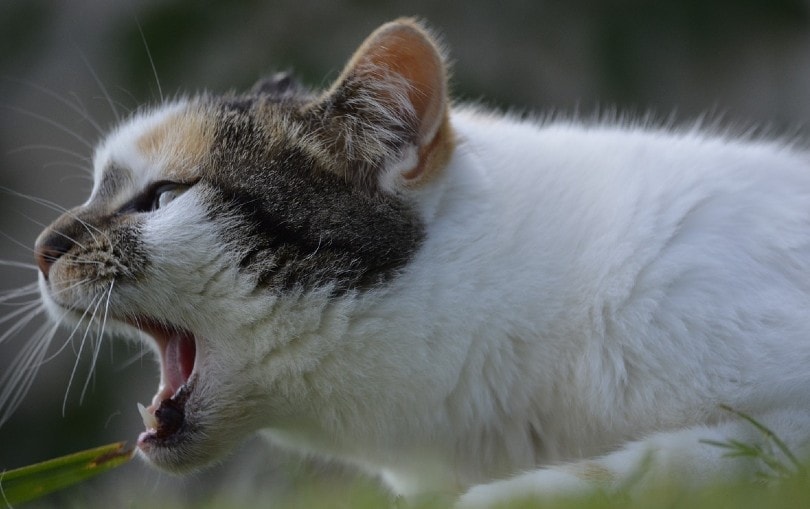
1. Viral Infections
Feline herpesvirus-1 and feline calicivirus can cause coughing. These viruses are contagious and easily transfer between cats. Viruses like herpes can lay dormant for a cat’s entire life, with symptoms flaring up from time to time, particularly when stressed. Usually, these viruses affect the upper airways, nose, and throat. Your cat can be protected from these by vaccination.
2. Chronic Allergic Airway Disease or Asthma
Approximately 1% of cats are diagnosed with chronic airway disease or feline asthma. The disease is similar to asthma in humans in that allergies can cause airway inflammation and a wheezing cough. Siamese and Oriental breeds are predisposed to developing the condition.
3. Infection
Viral, bacterial, and parasitic infections can cause coughing. Parasites are more common in cats that live outdoors and hunt but all cats should be protected with a regular deworming regimen.
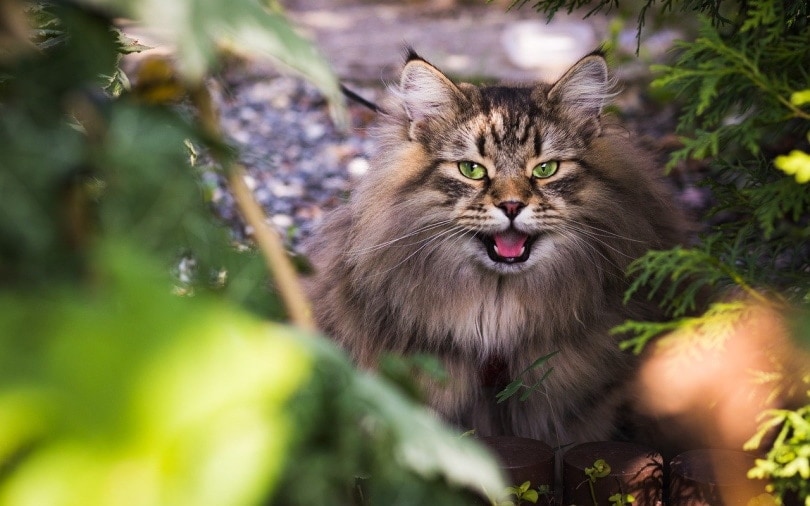
4. Pneumonia
In cats, pneumonia refers to the inflammation of the lungs but luckily it is very rare in cats. Coughing is one symptom of pneumonia, but animals that develop this condition will usually look sick overall. Other symptoms include lack of appetite, fever, and difficulty breathing.
5. Foreign Body Obstruction or Choking
Occasionally, parts of food, plants, or other things that your cat tries to eat can get lodged in the throat, causing your cat to choke. Coughing is a reflexive action to try to dislodge the offending object. Foreign material can also be inhaled into the lung tissue and lodging there.
6. Edema
Pulmonary edema is an accumulation of fluid in the lungs, and it causes your cat to cough to get rid of excess fluid build-up. It is usually caused by another underlying condition, such as heart failure, but it is not common in cats.
7. Trauma
When cats experience trauma, their airways can become damaged or swollen. In some cases, your cat’s lungs can become punctured, allowing air to escape into the area surrounding the lungs. Injuries to a cat’s respiratory system make it difficult for them to breathe. In the event of a traumatic accident, your cat should be seen by a veterinarian right away.
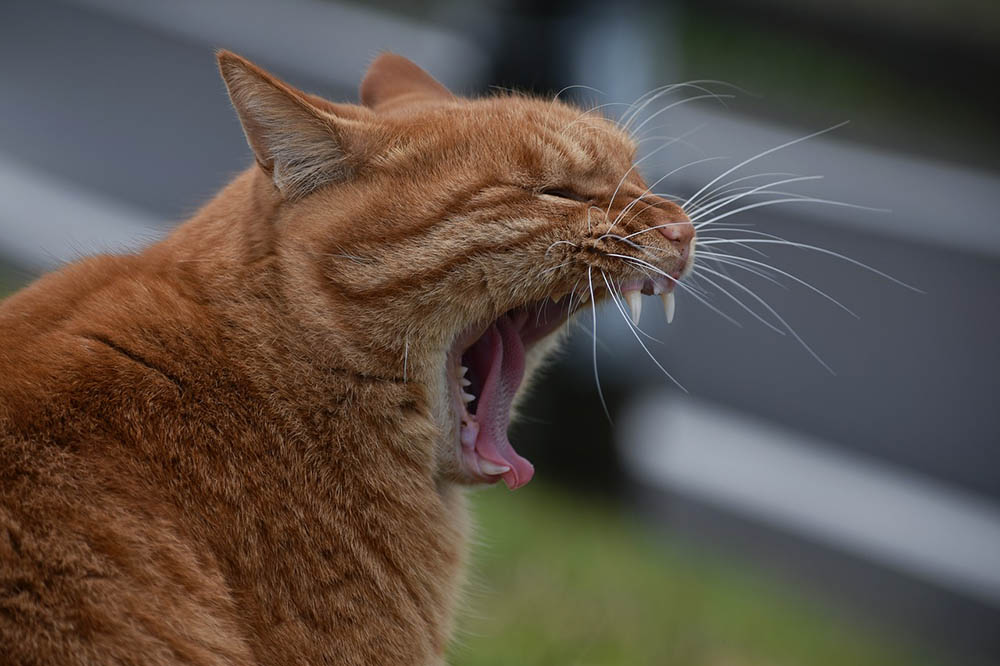
When Coughing Is Cause for Concern
If you hear your cat coughing, the first thing that you should do is watch them closely. A cat that is occasionally coughing over a few days or weeks should receive a medical evaluation, even if they aren’t showing any other symptoms.
If your cat appears to be in distress while they are coughing, get them seen by a vet right away.
- Limited or no appetite
- Decreased activity levels
- Behavioral changes
- Increased breathing rate (over 60 breaths per minute)
- Increased effort to breathe or open mouth breathing
Treatments for Cat Coughing
How a coughing cat is treated will depend on the cause of the coughing. This is why a diagnosis from a veterinarian is so important.
- Steroids to decrease inflammation
- Antibiotics to treat infections
- Anti-parasitics to remove parasites
Final Thoughts
It is rare for a cat to cough. Most cat owners have never heard their pet cough, and it can be difficult to recognize coughing when it happens. While there are benign reasons for a cat to have a single episode of coughing, any persistent or chronic coughing should be diagnosed by a veterinarian. Coughing could be a symptom of another problem. Treating the cause sooner rather than later will hopefully ensure that your cat doesn’t have long-term effects.
Featured Image Credit: Ada K, Pixabay


